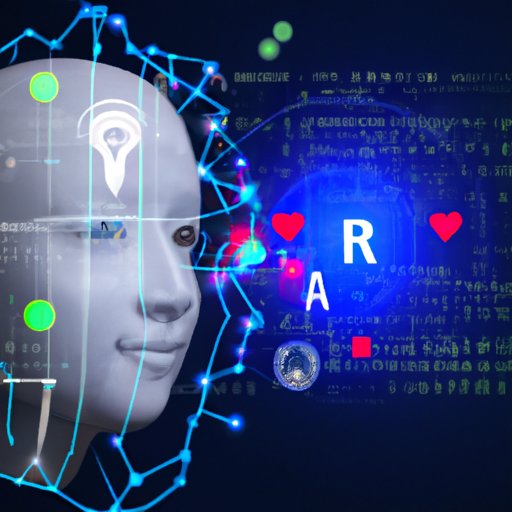Introduction
Artificial Intelligence (AI) has become an increasingly important part of our lives, from digital assistants to self-driving cars. With its potential to revolutionize industries and create new products, services, and jobs, AI is seen as a key driver of economic growth. However, there are serious concerns about the potential risks posed by AI. This article will explore the various dangers associated with AI and suggest ways to mitigate them.

Examining the Potential Risks of Artificial Intelligence
AI has the potential to disrupt existing social and political structures, which could have serious implications for human rights. According to the United Nations Special Rapporteur on extreme poverty and human rights, “AI-driven systems can lead to entrenching existing inequalities, marginalizing individuals and groups, and exacerbating pre-existing power imbalances.” Furthermore, AI systems can be used to target vulnerable populations and exacerbate existing disparities in access to resources, education, and health care.
Another potential risk posed by AI is its impact on cyber security. AI-based systems are becoming increasingly sophisticated and difficult to detect, making them attractive targets for hackers and other malicious actors. As AI systems become more common, the threat of cyber attacks is likely to increase. Additionally, AI systems can be used to launch automated attacks, such as distributed denial of service (DDoS) attacks, which can overwhelm websites and cause serious damage.
The development of AI-powered autonomous weapons is another potential danger. Autonomous weapons are capable of selecting and attacking targets without direct human intervention, and their use raises ethical and legal questions. According to Toby Walsh, Professor of Artificial Intelligence at the University of New South Wales, “We need to ensure that we don’t sleepwalk into a future where machines decide who lives and dies.”
The Threat of AI-Driven Job Loss
AI has the potential to automate many of the tasks currently done by humans, leading to job losses in some sectors. In particular, low-skilled jobs are likely to be most affected, as AI systems are better suited for performing routine tasks than humans. This could lead to large-scale displacement of workers, as well as increased inequality due to the lack of new job opportunities.
The economic effects of AI-driven job loss are already being felt in some countries. In Japan, for example, the use of robots has led to a decrease in the number of manufacturing jobs and caused wages to stagnate. Similarly, in the US, the introduction of automation has had a negative impact on employment in the retail sector.
The Challenge of AI Bias and Discrimination
AI systems are often trained using datasets that contain biases or inaccuracies. This can lead to unfair treatment of certain groups, such as racial and ethnic minorities, women, and people with disabilities. For example, a study by MIT researchers found that facial recognition systems were less accurate when identifying darker-skinned individuals. Furthermore, AI algorithms can make errors in decision-making, which can lead to discriminatory outcomes.
AI bias and discrimination can also extend beyond the individual level. For example, AI-driven systems can be used to optimize pricing and allocate resources, which can lead to systemic inequality. To address this issue, experts have called for greater transparency and oversight of AI systems.
Conclusion
AI has the potential to revolutionize many aspects of our lives, but it also poses serious risks. These include the impact on human rights, negative effects on cybersecurity, dangers of AI-powered autonomous weapons, job losses caused by automation, and bias and discrimination in algorithmic decision-making. To mitigate these risks, it is essential that governments and businesses take steps to ensure that AI systems are developed responsibly and ethically.
(Note: Is this article not meeting your expectations? Do you have knowledge or insights to share? Unlock new opportunities and expand your reach by joining our authors team. Click Registration to join us and share your expertise with our readers.)
